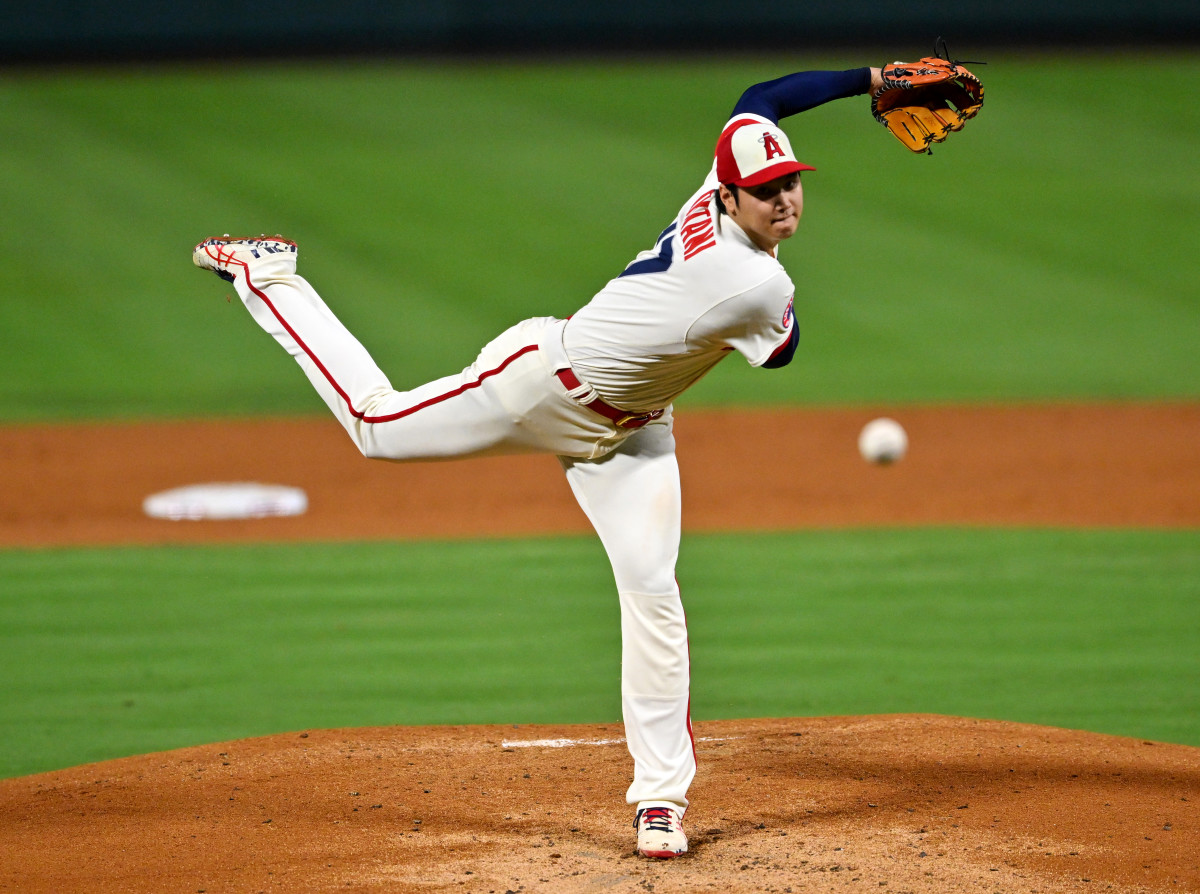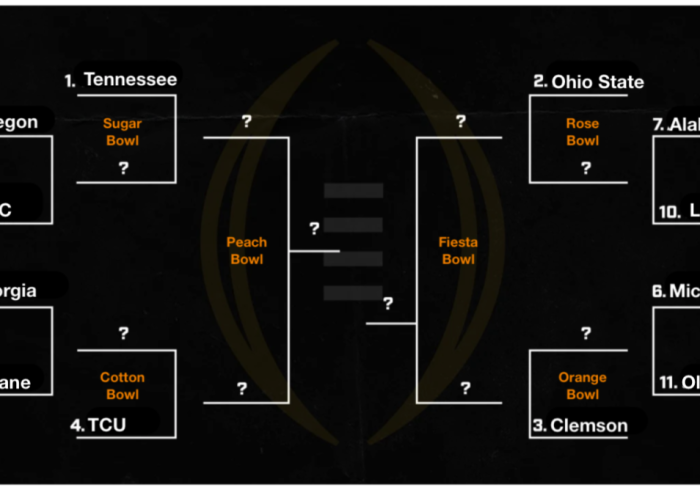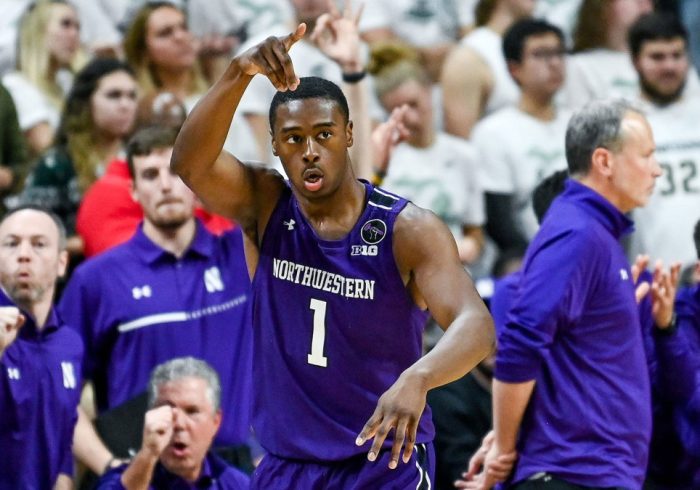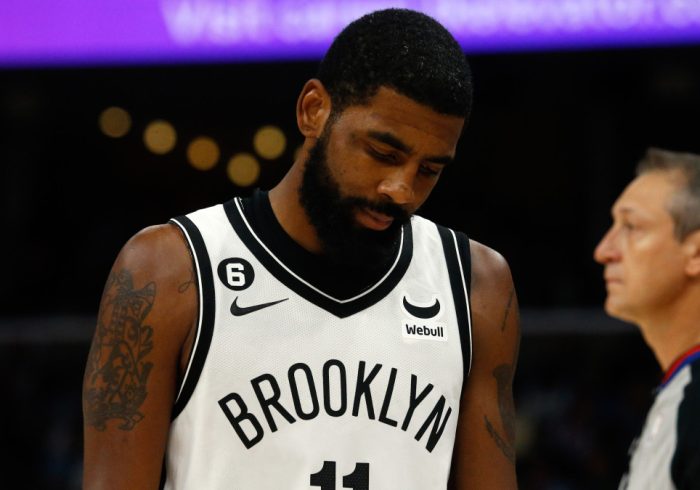Nearly three months ago, our own Tom Verducci called the budding American League MVP debate between Aaron Judge and Shohei Ohtani “one of the greatest of all time.” Now that we’ve reached the end of the regular season, his words have been proven correct.
In one corner stands a two-way star the likes of which have never been seen. In the other is a 6’7″ center fielder who has put up the ninth 60-homer season in MLB history and is polishing up one of the finest hitting showcases of all time. The result is an unfortunate circumstance in which one of these two historic campaigns will be left without any hardware to show for it.
Just about anybody who’s written or talked about the race in recent weeks and months has said that it’s neck-and-neck, and that voters have an excruciatingly difficult choice to make. Except it really isn’t all that close, if you look in the places that hang their hats on accurately predicting the outcomes of such events.
Every sportsbook and betting house has this as a runaway win for Judge. SI Sportsbook gave Judge a -1613 shot at bringing home the hardware in mid-September. At the same time, DraftKings put Judge’s chance of winning at -2000. Vegas Insider’s most recent odds had Judge as a whopping -10000, meaning a $10,000 bet would net you only $100. Based on those odds, Ohtani winning the award for the second straight year would stand as one of the biggest betting upsets of all time.
Which is too bad, because for as excellent as Judge has been this year, the two-way sensation is the correct choice.
Ohtani’s pitching has improved to another level this season, and his offense is nearly as good as it was when he won MVP last year.
Jayne Kamin-Oncea/USA TODAY Sports
Here is the part where, before defending Ohtani as the more deserving MVP selection, I laud Judge for his accomplishments, which is easy to do because he has so many. He leads the majors with a 212 OPS+, which is the highest in a full-length season since Barry Bonds in 2004, when he put up a laughable 263. Judge’s ’22 mark stands as the 24th-highest in MLB history. Oh, and he’s an impressive 16-for-19 in stolen base attempts while starting more games in center field than right field, his natural position, because until Harrison Bader returned from injury last month—after the Yankees traded for him in early August—New York had no true center fielder.
Judge has a 22-homer lead on Mike Trout, who ranks second in the AL, and if Judge maintains that lead, he’ll be the first player since Babe Ruth in 1928 to win the home run crown by so great a margin. He has an uphill climb to catch Twins infielder Luis Arraez for the AL batting title (Arraez is hitting .315 compared to Judge’s .311), but if he’s able to surpass him, he’d nab the 13th Triple Crown since RBIs became an official stat in ’20. He would also, of course, be the only Triple Crown winner with at least 60 home runs.
Again, Judge’s performance in 2022 is remarkable. But it’s not in the same ballpark as what Ohtani has pulled off for the second consecutive year.
Every year, hitters aspire to do what Judge did this season. And every once in a decade, or three, they succeed—maybe not with the home run totals, but at least in terms of overall production. But nobody even attempts to do what Ohtani is doing, and has done, for two consecutive years. His feats are so rare that there is truly only one name to compare him to, and even invoking the Sultan of Swat doesn’t do justice to Ohtani’s accomplishments.
After he completes one inning on the mound in Wednesday’s regular-season finale against the A’s, Ohtani will become the first player ever to qualify for both batting and pitching statistical categories. Ruth came close twice, logging 381 plate appearances with 166⅓ innings on the mound in 1918, with 11 home runs and a 2.22 ERA. He followed that up with 543 plate appearances and 133⅓ innings in ’19, bashing 29 homers with a 2.97 ERA before switching exclusively to hitting. Ohtani is a two-way player in the truest sense of the term, turning the world’s foremost baseball association into his own personal Little League.
Ohtani’s adjusted OPS (147) ranks fourth in the AL; his adjusted ERA (169) also ranks fourth. He’s the fastest runner from home to first in the league. Along with adjusted OPS and ERA, Ohtani ranks in the top five in the AL in the following categories: home runs (fourth), triples (fourth), OPS (fourth), total bases (fourth), extra-base hits (third), ERA (fourth), wins (fourth), strikeout rate (first), strikeouts (third) and FIP (second). Among AL pitchers, he has the most games with 10 or more strikeouts (10), and currently has MLB’s longest active hitting streak, which climbed to 18 games Monday night.
Ohtani is the first player ever with 10 or more pitching wins and 30 or more home runs in a season. The only other player with 10 of each in the same season is Ruth, who won 13 games and hit 11 homers in the aforementioned 1918 campaign. A day after Judge tied Roger Maris’s AL single-season record of 61 home runs, Ohtani took a no-hit bid into the eighth inning against Oakland. He also went 2-for-4 at the plate, adding as many hits himself as he allowed to A’s hitters.
In addition to his pitching and hitting prowess, Ohtani is one of the fastest runners in baseball.
Matt Krohn/USA TODAY Sports
Aside from focus on the AL’s home run record and a potential Triple Crown win, there are two primary talking points I’ve observed in support of a win for Judge. The first is that Judge’s accomplishments helped bolster a winning team, and thus were more valuable than Ohtani’s, which were wasted on yet another disappointing Angels season. In my view, the MVP award—which has a definition left intentionally ambiguous, and, to me, puts an unnecessary strain on voters to draw arbitrary lines in the sand—is meant to go to the best individual player. The best player is the most valuable, simply by being the best. Holding the Angels’ ineptitude against Ohtani is an unfair demerit, though there are certainly voters who feel that Judge’s production came under more pressure than Ohtani’s by virtue of his team’s place in the standings, and thus is more impressive. On that front, there might be nothing more to say other than, “Agree to disagree.”
The second notion that gets touted as a pseudo trump card is the idea that, when the 2022 season is viewed in hindsight, Judge will be the first name that comes to mind, and that the story of the season is his story. That feels both wildly speculative and, in a way, self-fulfilling, when those who are positing Judge as the story of the season are the very authors of that story. And besides, it should come as no surprise that the best player on the most popular team gets more attention than one whose club spent nearly the entire year under .500 and out of the national spotlight.
Ohtani has made what had for a century been accepted as impossible into commonplace, and effectively hindered his 2022 MVP chances with his breakthrough ’21 performance that, in comparison, was somehow less impressive than the sequel—by his own assessment.
Back in July, Tom compared Ohtani’s two-way feats to “watching someone juggling chainsaws.” This year, he’s lit one of the chainsaws on fire while balancing atop a high wire on one leg. It’s the most breathtaking individual showing the game has ever seen, even if—like his team’s inconsequential third-place finish—it ultimately goes unrewarded.
More MLB coverage:
• ‘Let’s F—ing Party’: The Mariners Finally End Their 21-Year Playoff Drought
• How Austin Riley Became the Cornerstone of the Braves’ Core
• The Guardians Are MLB’s Most Interesting Postseason Team
• MLB Power Rankings: A Haiku for Every Team to Start October
• Everything in Aaron Judge’s Career Led Him to This Historic Season



